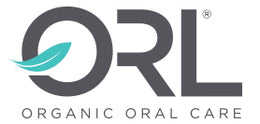When most people talk about xylitol, they talk about how it works well as a sugar substitute for diabetics or about how chewing gum with it can reduce cavities. These things are true, but it really doesn’t give xylitol the credit it deserves. On the surface, it is a basic sugar alcohol, but it also offers a multitude of benefits for your oral health. When you use toothpastes and mouthwashes that have it, some amazing changes occur.
You Develop Less Plaque
Dental plaque, also called biofilm, is a sticky substance which adheres to your teeth. It’s teeming with bacteria responsible for bad breath, tooth decay, and gum disease, which is why we brush regularly to remove it. Anything that we miss hardens into calculus, also referred to as tartar, which can only be removed in a dental office. The biggest culprit in terms of decay is Streptococcus mutans, which dines on the sugars, starches, and cellulose left behind by our diets, and releases acids as byproducts of the process. However, Streptococcus mutans cannot break down xylitol, so when that’s all it’s “fed,” it starves to death. Researchers credit this process with the diminished plaque seen in people who receive xylitol therapy or who are given xylitol-containing products to eat.
Many of the things we do in our daily lives, from consuming acidic beverages through using certain toothpastes and mouthwashes and failing to remove plaque, cause the pH of our saliva to drop. This is concerning because teeth demineralize in an acidic environment. Calcium, phosphate, and other essential minerals, which keep our enamel strong and decay-resistant are lost. However, when we have a neutral pH of 7.0, researchers confirm, our teeth naturally absorb those minerals from our saliva and become fortified again. Because xylitol takes care of the bacteria which leads to pH imbalances, teeth have the opportunity to remineralize naturally.
You Have Fewer Cavities
Again, if you eradicate the bacteria which causes decay, you’ll have less decay. In one study, participants using xylitol had 80-85% fewer cavities. Another group decided to see if the benefits carried over to children who fit into high-risk groups. They worked with poor families in which more than half the children had at least one cavity by age three. The researchers concluded that these children have 70% fewer cavities when xylitol is offered twice per day as their primary teeth are forming. Of course, some people still get cavities, even when they receive xylitol treatments, but the good news here is that the cavities are significantly smaller, researchers say. It may not sound like much, but bear in mind the size of a cavity determines whether it can be repaired with a small filling or requires something more intensive, like a crown or a root canal. It’s a win regardless.
Your Children Will Have Fewer Cavities
As most parents know, there comes a time in toddlerhood where your child wants some of everything you have. This extends into food and drinks, which parents readily share. Scientists refer to this as the “Window of Infectivity,” as parents aren’t only sharing their food—they’re sharing the bacteria which leads to decay. To be clear, research shows children are not born with Streptococcus mutans, but by 18 months, about 20% will have it and prevalence grows from there. Further research concludes that children who have the bacteria at age two have a higher chance of developing decay in their primary teeth, and those who have decay in primary teeth are likely to develop it in their permanent teeth. However, scientists discovered that, if mothers receive xylitol treatment, they’re less likely to have Streptococcus mutans, themselves, and they’re also far less likely to pass it on to their children.
You Can Eliminate Dry Mouth Symptoms
Dry mouth, known by professionals as xerostomia, is a serious problem for those it impacts. When saliva production is diminished, pH drops and decay risk rises. Many conditions cause it, but it’s also a side-effect of hundreds of medications. Pharmacists mention antihistamines, diuretics, antidepressants, antihypertensives, analgesics, and tranquilizers as leading contributors. However, when people with dry mouth are given mouthwashes containing xylitol, researchers say saliva production increases and the symptoms of dry mouth are diminished.
You Improve Your Overall Health
Researchers have seen links between certain health conditions and periodontal disease for many years, but it was only recently that they discovered it has to do with inflammation. Diabetes, heart disease, osteoporosis, respiratory disease, Alzheimer’s disease, and even depression are all linked to periodontal disease. However, pregnant women have an especially important reason to be cautious. Per the CDC, gum disease can lead to premature birth, which can have lifelong consequences for the little one. In short, preventing and treating gum disease can improve your overall health, and may even impact the lifelong health of your unborn child.
Give Your Family the Healthy Smiles They Deserve with Organic Xylitol Toothpaste and Mouthwash
Xylitol is an unsung hero in the dental world, which unfortunately means it’s up to individuals to familiarize themselves with its benefits and then scour labels to find products which contain it. We understand how difficult it is to find natural and healthy products, which is why we’ve taken great care while formulating ORL toothpastes and mouthwashes. With a perfect 7.0 neutral pH balance, our proprietary formulas deliver only the good things your teeth and gums need, like organic xylitol, fortifying vitamins and minerals, and plant-based essential oils mindfully chosen to support oral health while leaving you with a vibrant fresh smile. We’ve even developed a bubble gum flavor kids love, ensuring your whole family can benefit from our powerful fluoride-free formulas.
